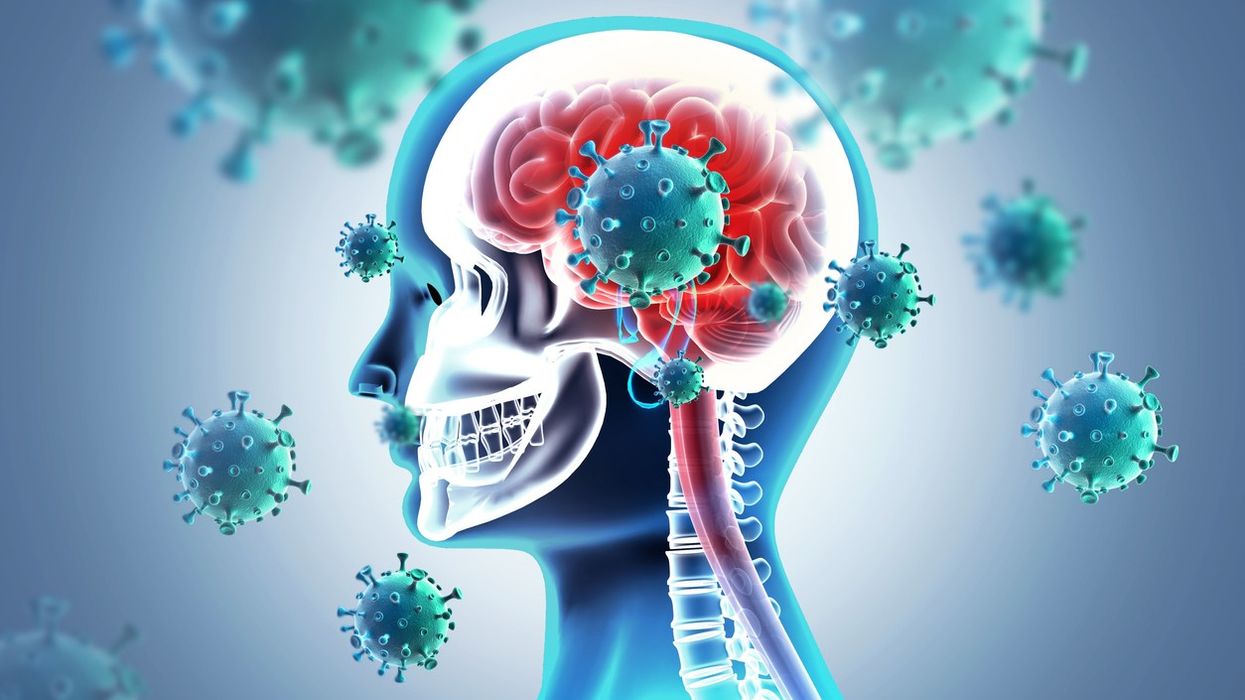A new study suggested that pandemic-related stressors have physically aged brains of adolescents, according to a study.
The new findings indicate that the neurological and mental health effects of the pandemic on adolescents may have been even worse, the study said. They have been published in the journal Biological Psychiatry: Global Open Science.
In 2020 alone, according to a study by Stanford University, US, reports of anxiety and depression in adults rose by more than 25 per cent compared to previous years.
"We already know from global research that the pandemic has adversely affected mental health in youth, but we didn't know what, if anything, it was doing physically to their brains," said the first author of the paper, Ian Gotlib, Stanford University.
Changes in brain structure occur naturally as we age, Gotlib noted.
During puberty and early teenage years, kids' bodies experience increased growth in both the hippocampus and the amygdala, areas of the brain that respectively control access to certain memories and help to modulate emotions. At the same time, tissues in the cortex, an area involved in executive functioning, become thinner.
By comparing MRI scans from a cohort of 163 children taken before and during the pandemic, Gotlib's study showed that this developmental process sped up in adolescents as they experienced the COVID-19 lockdowns.
Until now, he said, these sorts of accelerated changes in "brain age" have appeared only in children who have experienced chronic adversity, whether from violence, neglect, family dysfunction, or a combination of multiple factors.
Although those experiences are linked to poor mental health outcomes later in life, it is unclear whether the changes in brain structure that the Stanford team observed are linked to changes in mental health, Gotlib noted.
"It's also not clear if the changes are permanent," said Gotlib, who is also the director of the Stanford Neurodevelopment, Affect, and Psychopathology (SNAP) Laboratory at Stanford University.
"Will their chronological age eventually catch up to their 'brain age'? If their brain remains permanently older than their chronological age, it's unclear what the outcomes will be in the future.
"For a 70- or 80-year-old, you'd expect some cognitive and memory problems based on changes in the brain, but what does it mean for a 16-year-old if their brains are aging prematurely?" said Gotlib.
Originally, Gotlib explained, his study was not designed to look at the impact of COVID-19 on brain structure.
Before the pandemic, his lab had recruited a cohort of children and adolescents from around the San Francisco Bay Area to participate in a long-term study on depression during puberty – but when the pandemic hit, he could not conduct regularly-scheduled MRI scans on those youth, the study said.
"Then, nine months later, we had a hard restart," Gotlib said.
Once Gotlib could continue brain scans from his cohort, the study was a year behind schedule. Under normal circumstances, it would be possible to statistically correct for the delay while analyzing the study's data – but the pandemic was far from a normal event.
"That technique only works if you assume the brains of 16-year-olds today are the same as the brains of 16-year-olds before the pandemic with respect to cortical thickness and hippocampal and amygdala volume," Gotlib said.
"After looking at our data, we realized that they're not. Compared to adolescents assessed before the pandemic, adolescents assessed after the pandemic shutdowns not only had more severe internalizing mental health problems, but also had reduced cortical thickness, larger hippocampal and amygdala volume, and more advanced brain age," said Gotlib.
These findings could have major implications for other longitudinal studies that have spanned the pandemic. If kids who experienced the pandemic show accelerated development in their brains, scientists will have to account for that abnormal rate of growth in any future research involving this generation, said the study.
"The pandemic is a global phenomenon – there's no one who hasn't experienced it," said Gotlib. "There's no real control group." These findings might also have serious consequences for an entire generation of adolescents later in life, added co-author Jonas Miller, University of Connecticut, US.
"Adolescence is already a period of rapid reorganization in the brain, and it's already linked to increased rates of mental health problems, depression, and risk-taking behavior," said Miller.
"Now you have this global event that's happening, where everyone is experiencing some kind of adversity in the form of disruption to their daily routines – so it might be the case that the brains of kids who are 16 or 17 today are not comparable to those of their counterparts just a few years ago," said Miller.
(PTI)




